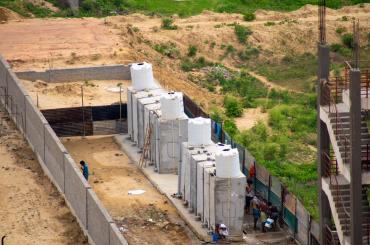

Molly Lipscomb
Associate Professor of Public Policy and Economics, University of Virginia
Molly Lipscomb is an Associate Professor of Public Policy and Economics at the Frank Batten School of Leadership and Public Policy, University of Virginia.
Her research focuses primarily on environmental issues in developing countries and adaptation to lack of centralized health and sanitation services. She has analyzed the incentives to pollute near downstream borders, the impact of access to electricity on human development and poverty indicators, the impact of increased agricultural productivity on deforestation, the effectiveness of auctions in reducing prices for sanitation services, and methods of targeting subsidies to households to increase take-up of improved sanitation services.
Lipscomb is a principal investigator on several large randomized controlled trials including a project measuring the impact of different social network and savings interventions in increasing willingness to pay for improved sanitation services in Senegal, a project measuring the importance of access to information in negotiations with service providers in Ghana, a project testing a targeting strategy for subsidies for sanitation services in Burkina Faso, a project testing the relative effectiveness of different types of leaders in increasing the willingness to pay for water treatment tablets in Uganda, and a project decomposing the components of personal savings through alternative loan types in Uganda.
Lipscomb received her Ph.D. from the University of Colorado at Boulder in 2009 and has served as a consultant at the World Bank and a Peace Corps Volunteer in the Islamic Republic of Mauritania.
Recent work by Molly Lipscomb
-

Policy lessons from new advances in sanitation economics
To effectively improve sanitation in low-income areas, policy must address a number of key issues, including credit market failures, environmental externalities, social preferences and low public sector capacity
Published 21.05.24
-

How lumpy investments determine the effect of expanding financial services: Evidence from Uganda
Grants and finance can alleviate poverty traps associated with lumpy investments, but the impact on development depends on the supply of investment goods
Published 06.04.23
-

The impact of privatising the management of a sanitation utility: Evidence from Senegal
Privatising sludge treatment centres improves sanitation outcomes and reduces desludging prices without concentrating market power
Published 30.05.22
-
Using mobile money to improve access to sanitation services in Dakar
Subsidies see a greater take up of mechanised latrine desludging than mental accounting nudges for better public health
Published 12.11.18